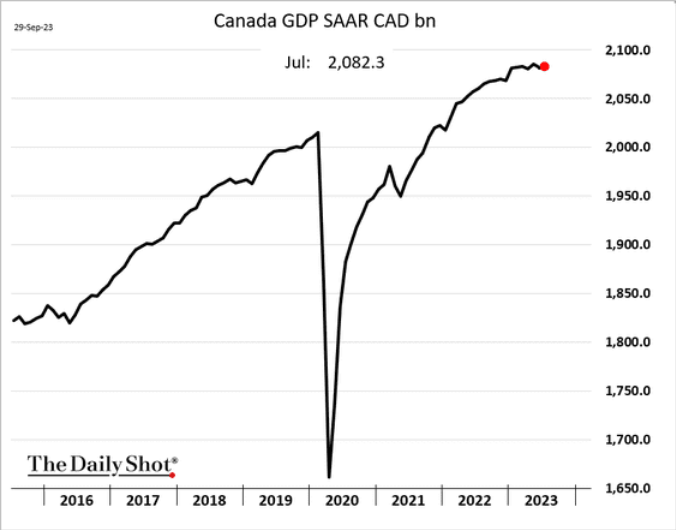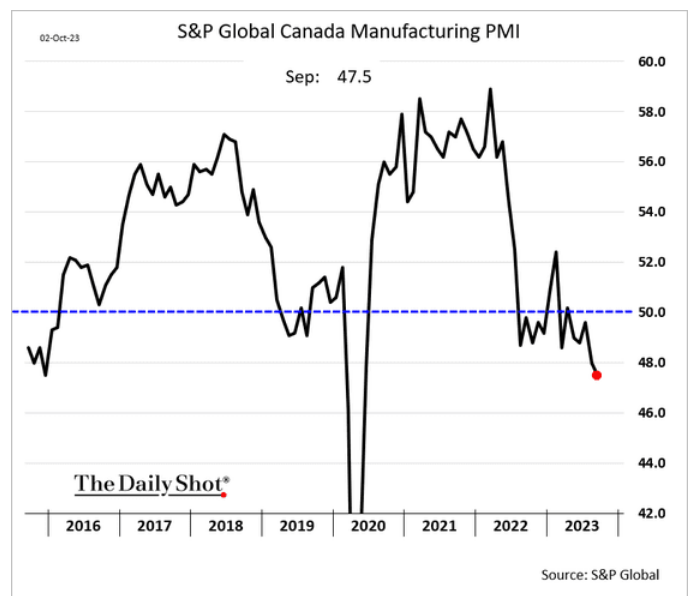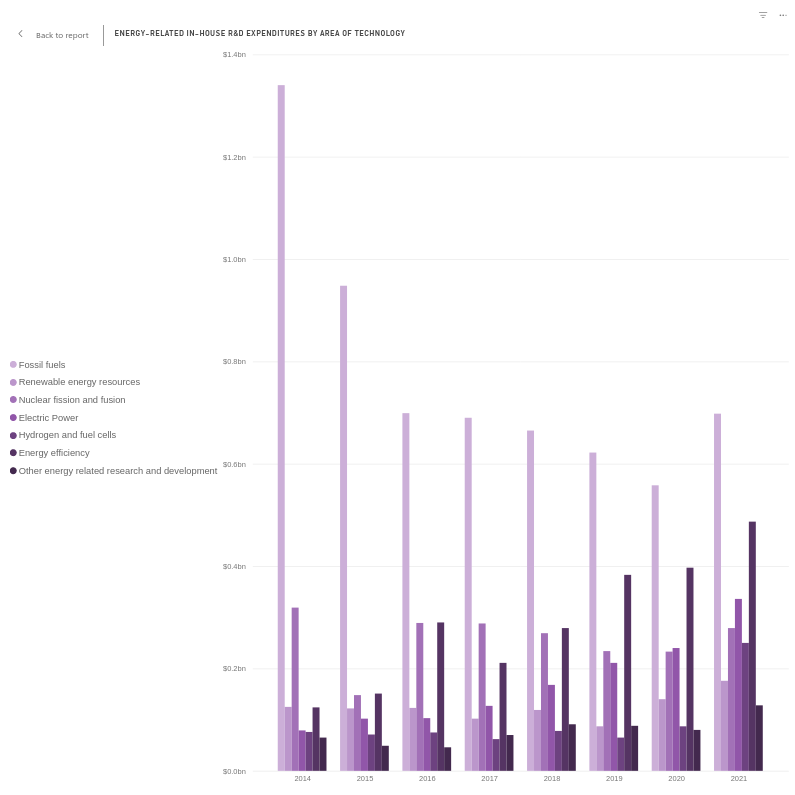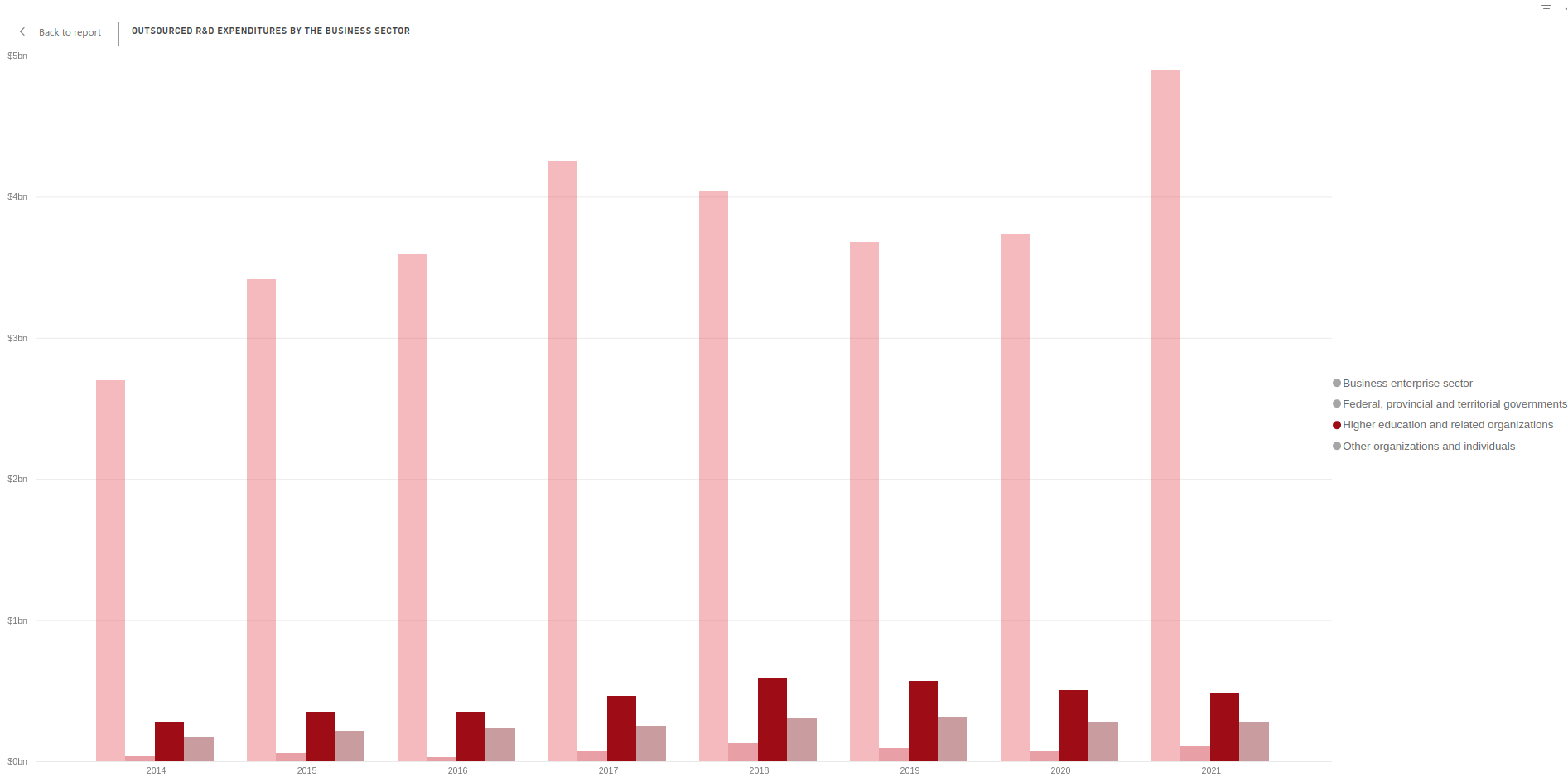October 3, 2023
Canada's economy
The impact of higher rates that we have all been waiting for has arrived.

One of the indexes that measures manufacturing activity is curving downward as well:
The S&P Global Canada Manufacturing Purchasing Managers' Index (PMI) fell to a seasonally adjusted 47.5 in September, its lowest level since May 2020, from 48.0 in August.
New orders measure was at 46.9, also down from 47.7 in the previous month (Reuters)
S&P Global said the decline in manufacturing production in September was the steepest since August 2022, while sales were the worst since March. (MarketWatch)

Canada is not the only place in the world now expecting to sink in to recession because of higher rates.
Energy R&D
Stats Canada has released some energy research and development investment statistics. They do not fill one with confidence that we are trying to move away from fossil fuels:
Full report here: https://www150.statcan.gc.ca/n1/pub/71-607-x/71-607-x2019016-eng.htm

Total "outsourced" R&D expenditures also show that the state is attempting to make-up the difference in the lack of growing private sector R&D, but has failed to do so. Not clear in the stats, but a story we know is happening, is a decline in actual federal/provincial industrial R&D research being carried-out by the government. Instead, it is focused on direct profit subsidies for implementation on very specific technology.

Canada has some of the best universities and top researchers in the world and it has top-tier research capacity with highly functional state research agencies. Canada could be a powerhouse of research and application of technologies, but it refuses to supports its endemic research programs and institutions properly. Liberals and Conservatives barely disagree about the direction of investment on state-backed research, both supporting direct corporate supports in contrast to industry-wide research for policy or new product development.
The focus on commercialization activities at universities has to end.
The direct support for specific companies within our research and development programs at the state-level has to end.
That money has to be re-directed to industrial development research and product development with an eye to supporting industrial development of uniquely Canadian needs.
We have a lot of issues we need to deal with over the next little while that only a few other countries are facing. Technological change, shifts in major social issues, economic development, supporting upgrading of skills, and responding to climate change are all immediate threats to standards of living. We also have issues of sustainability of our major resource sectors that companies have no interest in addressing.
Continuing to wait for the market to provide is going to fail. The economics are not set-up to deal with future issues like these. The only way forward is to stop talking in aspirational whining and "someone should" statements and start actually directing and funding the parts of the democratic structures that do things to start producing those things we need.